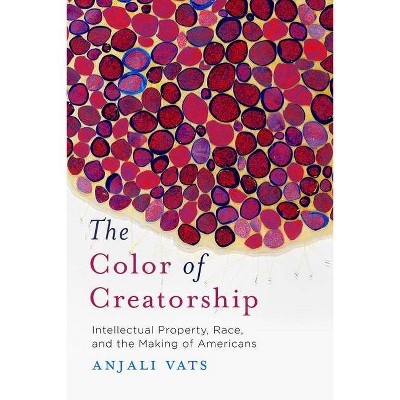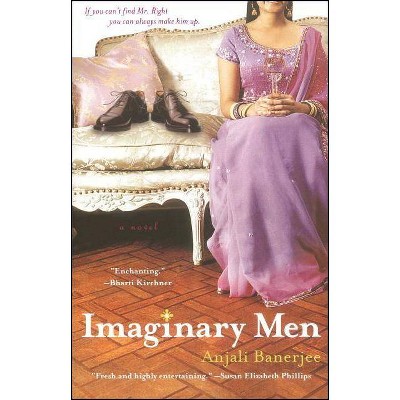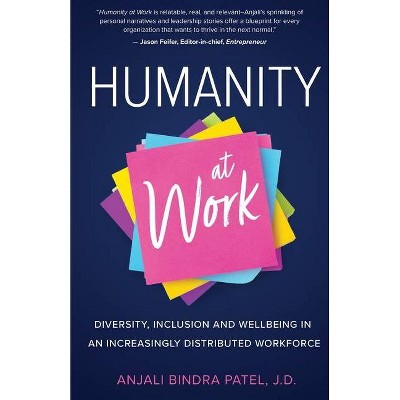The Color of Creatorship - by Anjali Vats (Paperback)

Similar Products
Products of same category from the store
AllProduct info
<p/><br></br><p><b> About the Book </b></p></br></br>"Creative Differences examines how intellectual property reflects and shapes racial formation in America, specifically arguing that copyright, trademark, and patent discourses operate in tandem with one another to form US ideals around race, citizenship, and property"--<p/><br></br><p><b> Book Synopsis </b></p></br></br><p><i>The Color of Creatorship</i> examines how copyright, trademark, and patent discourses work together to form American ideals around race, citizenship, and property. </p> <p>Working through key moments in intellectual property history since 1790, Anjali Vats reveals that even as they have seemingly evolved, American understandings of who is a creator and who is an infringer have remained remarkably racially conservative and consistent over time. Vats examines archival, legal, political, and popular culture texts to demonstrate how intellectual properties developed alongside definitions of the "good citizen," "bad citizen," and intellectual labor in racialized ways. Offering readers a theory of critical race intellectual property, Vats historicizes the figure of the citizen-creator, the white male maker who was incorporated into the national ideology as a key contributor to the nation's moral and economic development. She also traces the emergence of racial panics around infringement, arguing that the post-racial creator exists in opposition to the figure of the hyper-racial infringer, a national enemy who is the opposite of the hardworking, innovative American creator.</p> <p><i>The Color of Creatorship</i> contributes to a rapidly-developing conversation in critical race intellectual property. Vats argues that once anti-racist activists grapple with the underlying racial structures of intellectual property law, they can better advocate for strategies that resist the underlying drivers of racially disparate copyright, patent, and trademark policy.</p><p/><br></br><p><b> Review Quotes </b></p></br></br><br>American law defined black human beings as chattel, deprived Asian Americans the right to own property, and justified the appropriation of Native lands. Anjali Vats's riveting book reveals how <i>intellectual property</i> is rife with racial bias and actively creates racialized notions of citizenship and humanity. From the Marvin Gaye plagiarism suit to Prince's radical protest against copyright as modern slavery, Vats explores the racial biases that underlie rhetoric around ingenuity, citizenship, property, and the public domain. A <i>tour de force</i>.--Madhavi Sunder "Georgetown University Law Center"<br><br>Anjali Vats delivers a damning polemic on the racist scripts and tropes that have animated American intellectual property law and rhetoric, shaping understandings of citizenship and structures of national feeling in three distinct eras of racial political economy. <i>The Color of Creatorship</i> is destined to be a touchstone and lightning rod in critical race legal theory for years to come.--Rosemary J. Coombe "author of <i>The Cultural Life of Intellectual Properties: Authorship, Appropriation and the Law</i>"<br><br>Building on the work of racial justice and intellectual property pioneers, Anjali Vats elevates the conversation to important new registers, including concerns of equitable distribution and post-racial identity claims. Vats shows how IP and contested citizenship have evolved to embed centuries of systemic racial injustices, reaching into the past to imagine a new and exciting future for creatorship.--Jessica Silbey "Northeastern University"<br><br>Vats's powerful analysis draws mainly from laws and legal cases in the United States, moving roughly chronologically from the eighteenth century to the present. But her argument has international reach.--Shobita Parthasarathy "<i>Nature</i>"<br><p/><br></br><p><b> About the Author </b></p></br></br><b>Anjali Vats</b> is Assistant Professor of Communication and African and African Diaspora Studies and Assistant Professor of Law at Boston College.
Price History
Cheapest price in the interval: 27.99 on November 8, 2021
Most expensive price in the interval: 27.99 on December 20, 2021
Price Archive shows prices from various stores, lets you see history and find the cheapest. There is no actual sale on the website. For all support, inquiry and suggestion messagescommunication@pricearchive.us



















